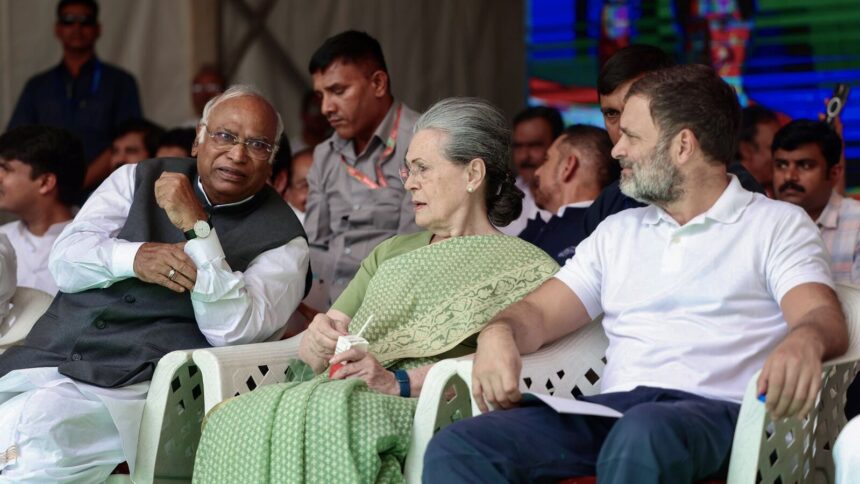Congress Working Committee Session in Belagavi: A Historical Event Marred by Controversy
The Congress Working Committee (CWC) recently convened in Belagavi, Karnataka, for a two-day session marked by both historical significance and a contemporary political row. This session, taking place on the centenary of Mahatma Gandhi’s influential presence at the 1924 Congress session, aimed to celebrate and reflect on the enduring values Gandhi advocated during India’s struggle for independence. However, the event has become overshadowed by allegations of a "distorted" map used in promotional materials, igniting a political firestorm between the Congress party and the Bharatiya Janata Party (BJP).
A Distorted Map Controversy
The controversy stems from the display of promotional materials that purportedly misrepresented India’s territorial integrity by indicating a portion of Kashmir as part of Pakistan. The BJP has been vocally critical of Congress’s actions, framing the use of such materials as disrespectful to India’s sovereignty. Karnataka BJP officials have accused the Congress of "appeasement politics," claiming the imagery was specifically designed to win over a particular voter demographic at the expense of national pride.
In response, the Congress party has distanced itself from the controversy, asserting that the contentious maps were not official banners endorsed by the party. This defensive posture highlights the often fraught relationship between political symbolism and national identity in India, particularly concerning sensitive issues like Kashmir.
Historic Significance of the Belagavi Session
While the political backdrop is tense, the historical context of the Belagavi session cannot be overlooked. The original 1924 Congress session, over which Gandhi presided, aimed to address pressing concerns of communal unity, socioeconomic disparities, and the principles of justice and equality—all vital to the independence movement.
Congress MP KC Venugopal spoke about the event’s importance as a nod to the past, stating that around 200 leaders from across the country would attend, honoring the legacy of Gandhi. This session serves not just as a remembrance of historical struggles but also as a platform for the Congress to reaffirm its commitment to the values that underpin its foundational ethos.
Gandhi’s presence in Belagavi was pivotal. He advocated for non-violence, non-cooperation, and fostering unity among diverse communities, emphasizing the dire need to address factionalism within the Congress itself as well as the broader societal divides of the time. "The Belgaum session became the bedrock of India’s freedom movement," said Venugopal as he reflected on the ideals propagated by Gandhi during this significant event.
Key Figures at the Session
Prominent Congress leaders, including party chief Mallikarjun Kharge, Rahul Gandhi, and Priyanka Gandhi Vadra, are said to be taking part in the festivities and discussions. The gathering aims not only to commemorate historical events but also to strategize on the party’s path forward in the contemporary political landscape, particularly in light of strengthened opposition momentum represented by the BJP.
Conclusion
As the Congress Working Committee session unfolds against a backdrop of political turmoil and historical reverence, it highlights the delicate interplay between past and present in Indian politics. While the controversy surrounding the inaccurate map has become a flashpoint, it also serves as a reminder of the ongoing challenges the Congress faces in asserting its position in a rapidly changing political environment. Through celebrating Gandhi’s legacy, the party seeks to reconnect with its foundational values and redefine its narrative amidst growing opposition from formidable rivals like the BJP. Whether this event positively impacts Congress’s standing in Karnataka and beyond remains to be seen, but it certainly underscores the complexities of India’s current political climate.










